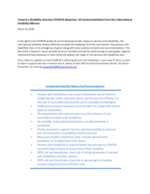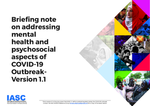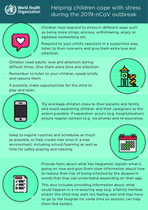Case Management Guidance for Disease Outbreak – Iraq Child Protection Sub-Cluster Situations where Access to Affected Communities in and outside of Camps is Limited
This guidance provides a short overview of the child protection (CP) risks associated with disease outbreak.




